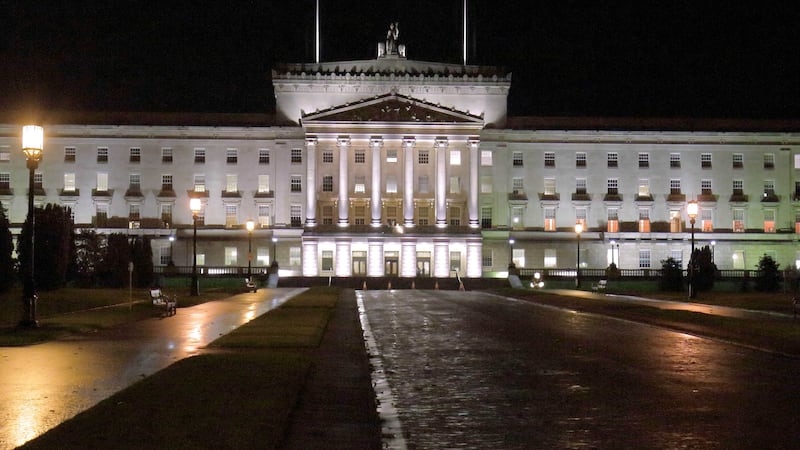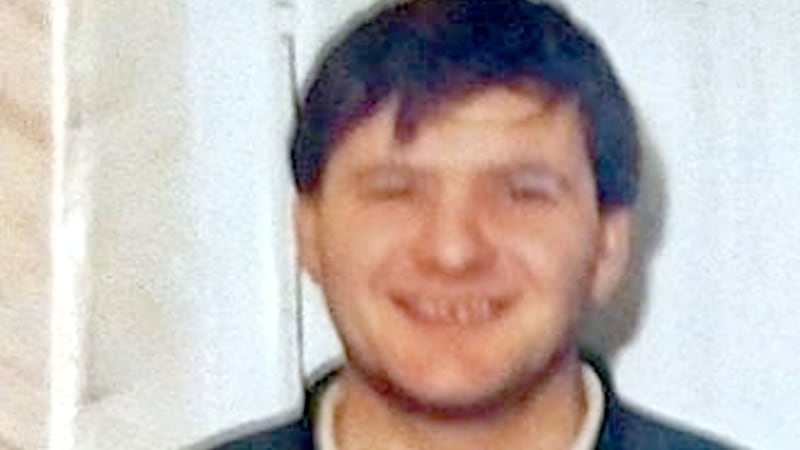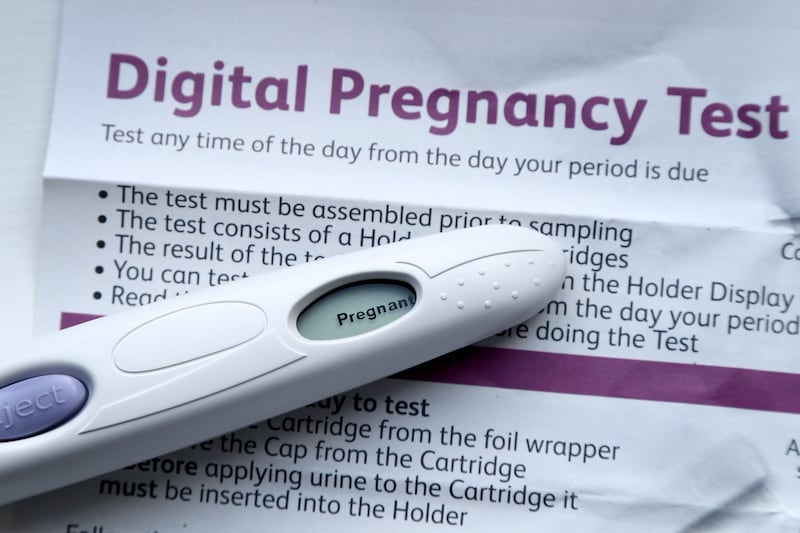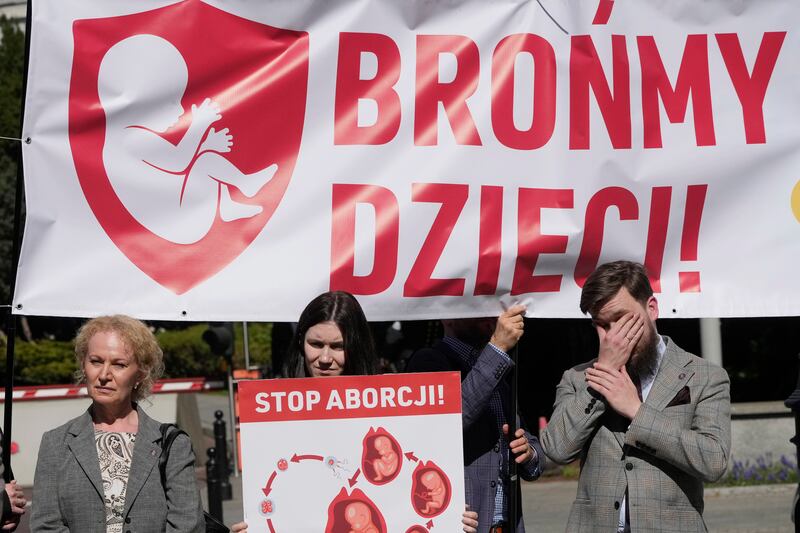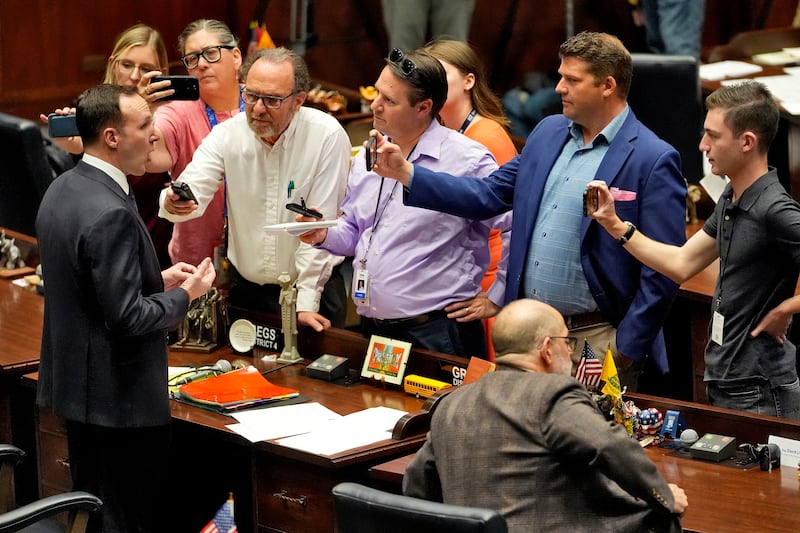FORCING vulnerable women to travel outside Northern Ireland to access abortion services is "shameful", the devolved Assembly has heard.
The comments were made during a lengthy debate on amending the law governing termination of pregnancies.
Alliance Party MLA Stewart Dickson said: "If we are to continue to fail women in Northern Ireland then we are abdicating our duties as representatives.
"The traumatic journey to England for many young women is one that is becoming a shame on Northern Ireland and to force women with fatal foetal abnormality pregnancy to look elsewhere for support and help makes this worse."
MLAs were considering controversial proposals to permit abortions in cases where the foetus has no chance of survival outside the womb (fatal foetal abnormality) or where a sexual crime has been committed.
However any legislative change appeared unlikely well before the late night vote after the DUP and SDLP signalled their opposition.
The DUP wants Health Minister Simon Hamilton to establish a working group to examine the issue and report back in six months' time.
A spokesman said: "We believe that this issue should best be dealt with in a measured way rather than in haste and without the benefit of appropriate scrutiny. Rushed law can often turn out to be bad law. Indeed we understand that the Attorney General has concerns about these amendments. This justice bill was not intended for this purpose."
Unlike other parts of the UK, the 1967 Abortion Act does not extend to Northern Ireland where abortions are banned except where the life or mental health of the mother is in danger.
Anyone who performs an illegal termination could be jailed for life.
Every year hundreds of women travel to other parts of the UK for abortions.
Mr Dickson added: "We have a system that forces the poorest and most vulnerable of women to continue a fatal foetal pregnancy despite the associated distress and physical complications this may cause."
Sinn Fein said its MLAs would support the amendments.
"There is no place at births for politicians," said Catriona Ruane. "We are supposed to make the law. It's the clinician, the woman and her family who should decide and that is key here today.
"The DUP has said it will support a commission which will report in six months. What about the plight of women in the here and now? What about the women who are pregnant as a result of rape or who are pregnant with a fatal foetal abnormality?
"Long fingering this does a disservice to women. It is all very well talking about compassion - compassion is not long fingering decisions."
The vexed issue of abortion has long divided opinion in Northern Ireland but was thrust back on to the political agenda when Sarah Ewart went public about having to travel for an abortion after being told her baby had no skull and could not survive after birth.
And following a landmark legal action, brought by the Northern Ireland Human Rights Commission last year, a High Court judge found the failure to provide legal exceptions breached human rights obligations.
In cases of fatal foetal abnormality, Mr Justice Mark Horner concluded the mother's inability to access an abortion was a "gross interference with her personal autonomy" while a disproportionate burden was placed on victims when a sexual crime occurred.
The judge's declaration of incompatibility did not immediately lift the ban but placed an onus on the Stormont Assembly to legislate.
SDLP MLA Dolores Kelly raised concerns that relaxing legislation could pave the way for "abortion on demand".
"This proposed amendment, what legislators may believe is a discreet and minor development of existing law, has also introduced a critical difference to the underlying philosophy of abortion legislation which will undoubtedly be focused upon by those who seek greater change," she said.
The Ulster Unionist Party gave MLAs a free vote on the issue.
Party leader Mike Nesbitt said: "I am not comfortable standing here as a man discussing what a woman should do with her body.
"I am not going to look a woman in the eye and say 'you must go full term even though you have been told there is a fatal foetal abnormality in your womb'. I am not going to say that to a woman any more than I am going to say 'you must abort because there is a fatal foetal abnormality'.
"We all should agree that this is an horrendous choice for these women, their partners and their families."
Ahead of the debate, Stormont's chief legal adviser attorney general John Larkin QC raised concerns that changing the law on fatal foetal abnormality could breach obligations under the United Nations Convention on the Rights of Persons with Disabilities (UNCRPD).
In a letter to the Traditional Unionist Voice MLA Jim Allister, the attorney general said: "Providing for a criminal law exception for 'fatal foetal abnormality', as proposed by this amendment, provides unborn children diagnosed with such a disability with much less protection under the law of Northern Ireland than those without such a disability."
Pro-life groups have held vigils to show their opposition to the proposals.
One of the largest, Precious Life, has said it would "expose" any MLA who votes in favour of the new legislation.
Meanwhile, Amnesty International said legal reform would be a "betrayal of women" while the Northern Ireland Human Rights Commission urged political action.
Chief commissioner Les Allamby said: "We would welcome the outstanding issues being resolved politically. However, if the Northern Ireland Assembly fails to act today in accordance with the court judgment, then our elected representatives will have missed an opportunity to address ongoing human rights violations.
"They will have neglected the fundamental rights of vulnerable women and girls facing the most difficult circumstances, when they could have resolved the situation."
